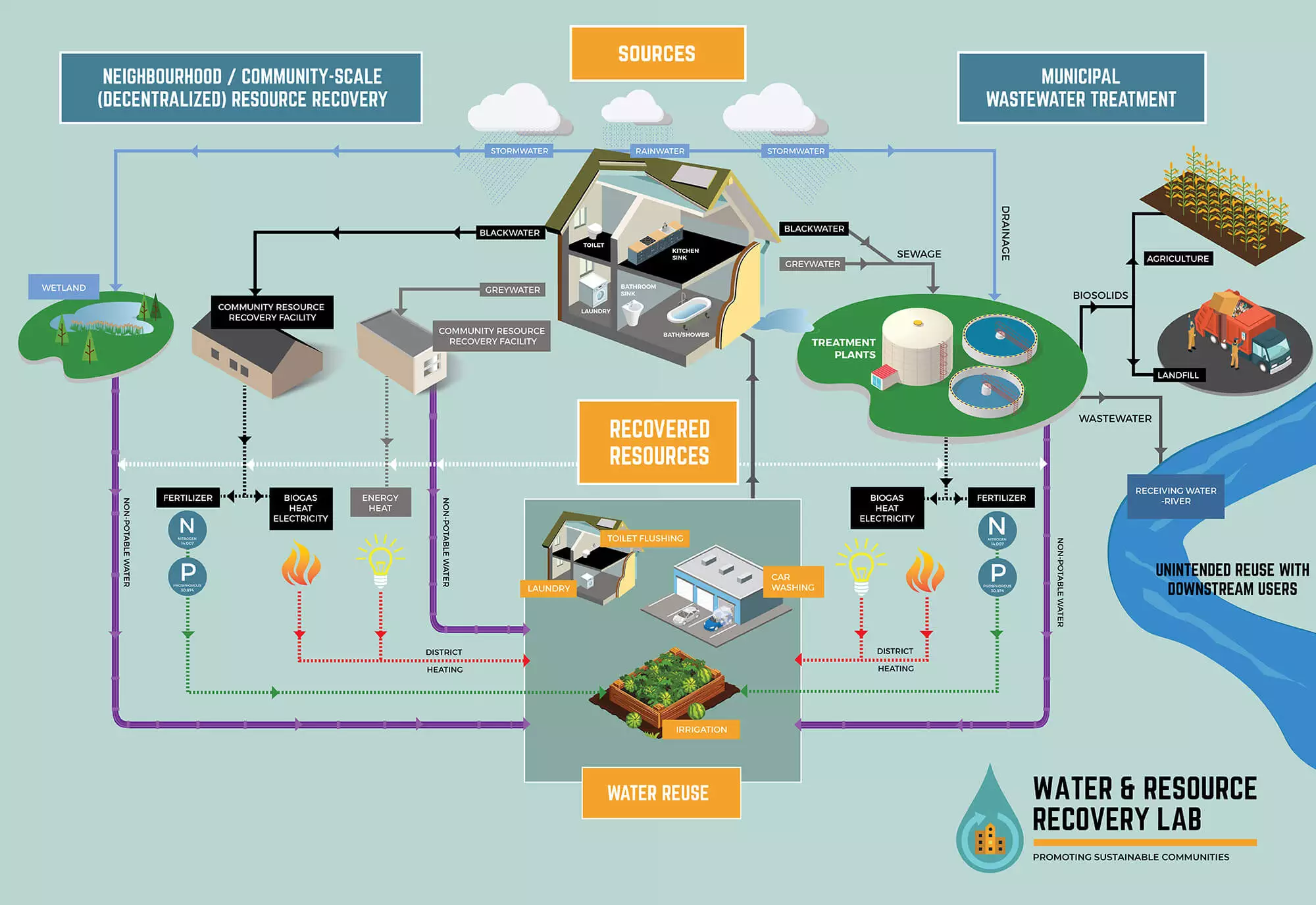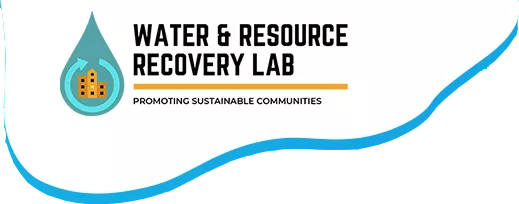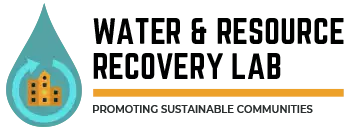Water Reuse and Resource Recovery Systems
Traditional municipal water supplies are rivers, lakes and groundwater. Alternative water sources for reuse include municipal wastewater or separately diverted wastewater from toilets (blackwater) and showers, sinks and washing machines (greywater), as well as harvested rainwater/stormwater, all treated to be fit-for-purpose. Rather than consuming energy as it occurs in delivering our current municipal water services, wastewater reuse can generate net energy (as recovered heat and biogas for district heating) along with fertilizer (nitrogen and phosphorus) to return to agriculture and treated (reclaimed) water to offset drinking water that is used for various non-drinking purposes (e.g. toilet flushing, clothes washing, irrigation).
The Various Forms of Water Reuse & Resource Recovery Systems

Download High-Resolution Image (PDF)
Important Terms
- Blackwater: water flushed from toilets and urinals, which represent the major load of organics, nutrients and pathogens, but only 30% of the volume of traditional municipal wastewater.
- Greywater: all household wastewater other than from toilets (i.e. bathroom sinks, showers, washing machines, etc.).
- Rainwater: rain caught directly from roof surfaces before reaching the ground.
- Stormwater: rain/snow-melt water that has flowed across the ground and been collected in a storm drain or other surface catchment system.
- Reclaimed water: used wastewater that has been treated to be fit-for-purpose.
- Wastewater/sewage: blackwater plus greywater (domestic sewage) from households that may also receive commercial and light industry wastewaters to the municipal sewer.
- Commercial/industrial wastewater: liquid waste generated by light industries, small businesses and commercial enterprises, which depending on the discharge license may be pretreated before release to the municipal sewer.
- Non–potable reuse: reclaimed water that is not intended for drinking, but is safe to be used for non-drinking purposes, such as garden irrigation, toilet flushing and clothes washing.
- Fit-for-purpose: water that has been collected for the purpose of reuse and treated according to the intended use. For example, reclaimed greywater to be used for flushing toilets is treated differently than stormwater being used for parkland irrigation.
For more terminologies related to water reuse, see here.


